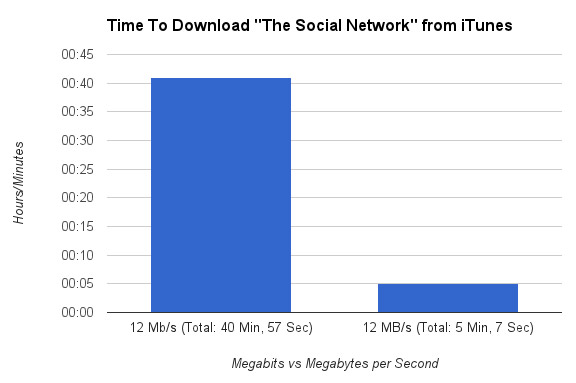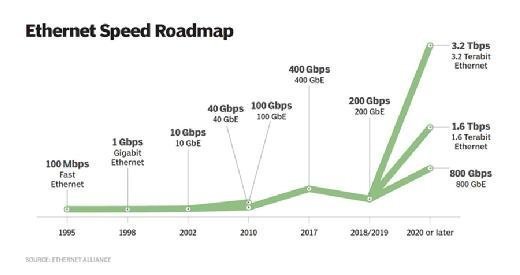Exploring the Partnership Between Megabits Per Second and Download Speeds
Exploring the Partnership Between Megabits Per Second and Download Speeds
Blog Article
Just How Megabits Per Second Effect Your Online Activities
The concept of megabits per second (Mbps) plays a critical role fit our online experiences. As digital activities proliferate, comprehending the ramifications of Mbps on video, streaming, and video gaming conferencing ends up being progressively crucial. Higher Mbps can improve performance and reduce disturbances, while inadequate speeds might cultivate disappointment and inefficiency. Analyzing your home's particular requirements in connection with these speeds is crucial, specifically as numerous tools contend for transmission capacity. Yet, the subtleties of exactly how Mbps affects various online tasks require further expedition, particularly as our dependence on digital connectivity continues to advance.
Comprehending Megabits Per Second
When thinking about web speed, it's vital to understand the principle of megabits per second (Mbps), which functions as a basic dimension for information transfer prices. This metric evaluates just how much data can be transferred over a net link in one second, giving a clear understanding of efficiency capabilities - Megabits Per Second. For context, one megabit amounts to one million little bits, and Mbps is commonly used to share data transfer for various on the internet tasks
A greater Mbps suggests a quicker internet link, making it possible for users to execute tasks such as downloading files, surfing internet sites, and engaging in on-line video gaming more efficiently. Common surfing needs around 1-5 Mbps, while streaming high-definition video may require 5-25 Mbps. Recognizing these requirements is vital for determining the suitable internet speed required for particular tasks.
In addition, the variety of devices connected to a network can influence total efficiency. Multiple customers streaming, gaming, or downloading and install concurrently can stress available data transfer, causing slower rates - Megabits Per Second. Assessing individual online habits and requirements is essential in picking a net strategy that straightens with one's demands, making sure a seamless electronic experience
Streaming and Buffering Issues
Streaming high-def content has actually become a staple of contemporary online amusement, yet it is commonly accompanied by irritating buffering problems. These disturbances can substantially interfere with the watching experience, leading to discontentment and possible loss of target market interaction. Buffering takes place when the data transmitted from the streaming service is not received promptly enough to keep a smooth playback, commonly as a result of insufficient web speed measured in megabits per second (Mbps)

Furthermore, real-time streaming can be influenced by network congestion, which takes place when numerous devices share the exact same data transfer. Consequently, maximizing connection speed and making sure adequate Mbps is essential for a seamless streaming experience. As streaming solutions proceed to develop, understanding the impact of Mbps on buffering issues stays vital for consumers seeking uninterrupted enjoyment.
Online Pc Gaming Efficiency
The influence of web speed on online tasks expands past streaming, dramatically influencing online pc gaming performance. In affordable gaming, reduced latency and high bandwidth are crucial for a smooth experience. A rapid link minimizes lag, enabling players to react swiftly to in-game events, which can be the difference in between victory and loss.
Bandwidth, measured in megabits per second (Mbps), plays an essential function in sustaining several gadgets and pc gaming platforms concurrently. Inadequate data transfer can cause went down connections or minimized game top quality, adversely impacting gameplay. On the internet multiplayer video games need considerable data transfer, specifically throughout peak video gaming hours when various gamers are online.
Fast-paced first-person shooters demand greater rates to preserve responsiveness, while turn-based strategy games might function moderately well on reduced speeds. As on-line gaming continues to progress, with boosting visual fidelity and more intricate multiplayer environments, the demand for higher Mbps will only magnify.
Video Conferencing Top Quality
In today's electronic landscape, video clip conferencing top quality is greatly affected by web speed, especially in regards to transmission capacity and latency. Top notch video calls require enough data transfer to transfer sound and video clip data seamlessly. Typically, a minimum of 1.5 Mbps upload and download speeds is suggested for standard meaning video, while high-definition video conferencing generally requires at least 3 Mbps.
Latency, or the hold-up between sending out and obtaining data, likewise plays a critical function in the customer experience. Greater latency can lead to echo, lag, and disjointed communications, which can prevent cooperation and interaction during conferences.
Additionally, several participants in a video clip meeting can stress available bandwidth, requiring even greater rates. Network congestion, typically caused by simultaneous tasks like streaming or downloading, can better deteriorate video quality. Therefore, for companies relying on video conferencing for remote cooperation, understanding the partnership in between megabits per overall and second interaction top quality is vital for maintaining productivity and visit this site right here boosting virtual communications.
Choosing the Right Net Plan
Selecting an ideal internet strategy is essential for guaranteeing ideal performance in different on-line activities, especially in settings that demand high transmission capacity, such as video clip conferencing and online video gaming. Megabits Per Second. When dig this taking into consideration a web plan, it is important to examine both the rate and information allowance to match your particular use demands
For houses with several users taking part in synchronised activities, a strategy supplying higher megabits per second (Mbps) is recommended. Commonly, a minimum of 25 Mbps is appropriate for standard streaming and surfing, while strategies exceeding 100 Mbps are more effective for more extensive jobs. In addition, take into consideration the nature of your online tasks; video conferencing needs at least 1.5 Mbps submit speed, while on the internet pc gaming might require a reduced latency yet regular connection.
It is likewise essential to examine your data cap. Unlimited data strategies can prevent throttling and interruptions, especially if heavy usage is prepared for. Lastly, study service providers in your location, as accessibility and pricing can differ. By attentively selecting a web plan customized to your needs, you can improve your online experience, making certain smooth, continuous accessibility to your preferred activities.
Verdict
In conclusion, the relevance of megabits per second (Mbps) in shaping online activities can not be overstated. A thorough understanding of specific or house Mbps requirements is important for picking a suitable web strategy that sufficiently supports diverse online tasks and user needs.

Normally, a minimum of 25 Mbps is appropriate for standard streaming and surfing, while strategies exceeding 100 Mbps are better for more extensive jobs. In addition, take into consideration the nature of your online activities; video conferencing requires at least 1.5 Mbps upload rate, while online gaming may need a lower latency but constant link.
Report this page